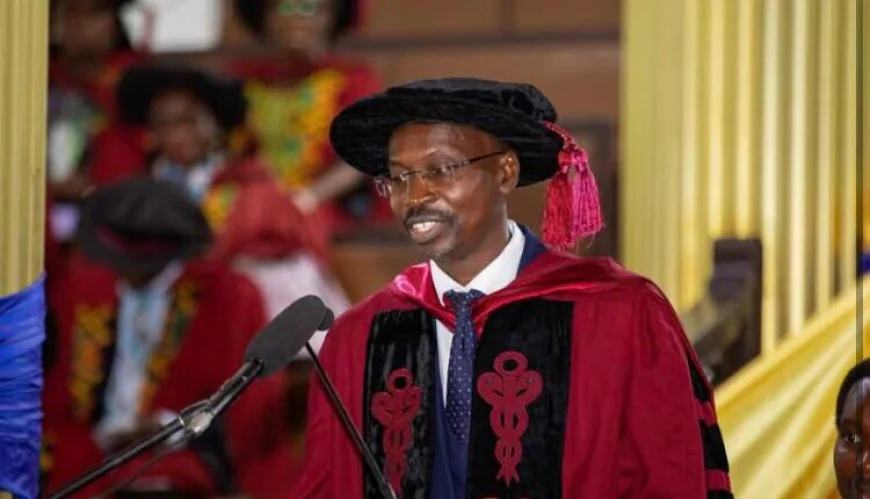Add a kidney check to the prenatal care guidelines, says Prof. Kyei
Professor Mathew Kwame Yamoah Kyei, the head of the surgery department at the University of Ghana Medical School (UGMS), has emphasized the importance of incorporating kidney disease screening into prenatal care guidelines at medical facilities.

Professor Mathew Kwame Yamoah Kyei, the head of the surgery department at the University of Ghana Medical School (UGMS), has emphasized the importance of incorporating kidney disease screening into prenatal care guidelines at medical facilities.
He claimed that taking this action would lower the number of kidney cancer-related deaths in the nation as well as aid in the early detection of kidney cancer in expectant mothers.
Read Also: Ghana's leadership in sustainable mining is reaffirmed by the land minister
This was stated by Prof. Kyei during his Thursday lecture on the subject of "Naked but not ashamed: Revealing for good outcomes in the management of genito-urinary disorders" at the University of Ghana in Legon.
Prof. Kyei's research studies over the years and his experience as a urologist served as the foundation for the lecture. As a matter of policy, we advocate for antenatal scans to at least look at the kidney. If we do that, we run the risk of developing kidney cancers early on, when they are essentially curable. Because the likelihood of a cancer being cured increases with its size, Prof. Kyei stated.
In order to aid in the treatment of their medical conditions, he also recommended that patients with disorders of the reproductive and urinary systems—which are also referred to as genitourinary disorders—have genitourinary surgeries as soon as they are diagnosed.

Prof. Kyei claims that because of their cultural and religious upbringing, the majority of patients with disorders of the reproductive and urinary systems found it challenging to see urologists or genitourinary surgeons to show them the afflicted areas of their bodies.
According to Prof. Kyei, this frequently makes these patients' health conditions worse because they may not be able to get treatment in a timely manner, which can result in a number of health issues.
In order to allay the fears of patients undergoing urology procedures, he also mentioned that the pain was not too great.
"A day or so of paracetamol is all that is needed at the moment, and many clients realized they did not even need it," Prof. Kyei continued.
Additionally, he pointed out that digital rectal examination and the use of Prostate Specific Antigen (PSA) were effective methods of prostate cancer screening that allowed for early detection and treatment.
Prof. Kyei advised people to see a genitourinary specialist for routine screening because those with a PSA between four and ten were 90% safe from developing prostate cancer.
After 50 years, I will suggest that you take the PSA test every two years. Based on the results, you should be able to handle it. Prof. Kyei stated that if you start early, you won't have to rush to find the problem's difficulty.
He added that although radical prostatectomy, another name for prostate cancer surgery, is difficult, it is a very effective treatment for men with the disease.
During her closing remarks, Prof. Nana Aba Appiah Amfo, the Vice-Chancellor of the UG, encouraged people to visit health facilities on a regular basis to have their reproductive and urinary systems checked in order to aid in the early detection of disorders.
Academics from academia, traditional leaders, the clergy, UG students, former UGMS students, and Prof. Kyei's family attended the lecture and gave him citations.


